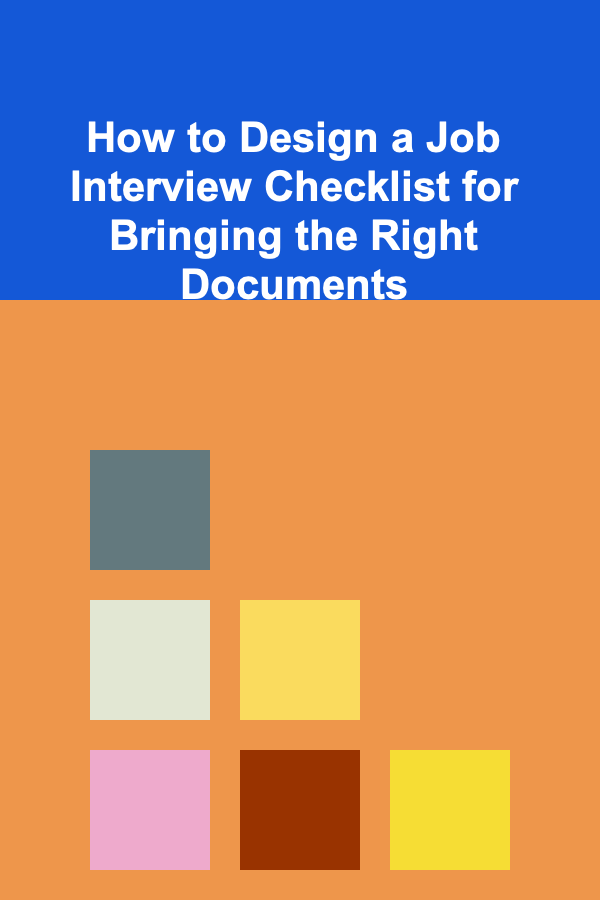
How to Design a Job Interview Checklist for Bringing the Right Documents
ebook include PDF & Audio bundle (Micro Guide)
$12.99$10.99
Limited Time Offer! Order within the next:

Job interviews are an essential part of the hiring process, and how well you prepare can significantly influence your chances of success. One crucial aspect that is often overlooked is ensuring you bring the right documents to the interview. Having the correct documents in hand not only helps you stay organized but also shows that you are detail-oriented and prepared. This actionable guide will walk you through how to design a comprehensive checklist for bringing the right documents to your next job interview.
Understand the Type of Interview and Role
The first step in designing your checklist is understanding the type of interview you're attending and the role you're applying for. The documents required for a technical position may differ from those required for a managerial or creative role. Additionally, whether the interview is in-person, virtual, or a hybrid format could influence the kinds of documents you'll need.
- Job Role: Some roles may require specific certifications, portfolios, or work samples.
- Interview Type: In-person interviews may require physical copies of documents, while virtual interviews might only need digital versions.
- Employer Requirements: Some employers provide a list of documents they want candidates to bring, so it's essential to follow these instructions carefully.
Actionable Checklist Item:
- Review the job description carefully to understand the role and its requirements.
- Check any communications or instructions from the employer regarding the documents to bring.
Gather Basic Documents
Certain documents are universally expected in almost every job interview, regardless of the type of role or industry. Having these documents prepared and organized will ensure you're ready for anything.
- Resume/Curriculum Vitae (CV): Always bring multiple copies of your updated resume. Even if you submitted it electronically before the interview, it's essential to bring printed copies to distribute to each interviewer.
- Cover Letter: If you submitted a cover letter during the application process, bring a few copies of it as well. Even if the interviewers already have it, it's useful to have one on hand for reference.
- References: Prepare a list of professional references who can vouch for your skills and work ethic. Include their names, job titles, contact information, and a brief note on your working relationship with them.
Actionable Checklist Item:
- Print several copies of your resume and cover letter to hand out during the interview.
- Bring at least three references with their contact information on a separate document.
Prepare Role-Specific Documents
For some positions, additional documents might be necessary to demonstrate your qualifications or expertise. These could be certifications, portfolios, work samples, or other relevant documents. This step depends heavily on the nature of the job you're interviewing for.
- Certifications and Licenses: If the job requires certain certifications (e.g., project management certifications, teaching credentials, or technical certifications), make sure to bring physical copies or scans of these documents.
- Portfolio or Work Samples: For creative roles (such as graphic design, writing, or architecture), a portfolio of your work may be required. Ensure your portfolio is well-organized and tailored to the position.
- Performance Evaluations: For senior or managerial roles, performance evaluations or reports showcasing your achievements in previous roles may be helpful. These documents can highlight your ability to meet goals and manage teams effectively.
Actionable Checklist Item:
- Bring all necessary certifications or licenses relevant to the role.
- If applicable, prepare a portfolio or work samples in an easily accessible format (physical or digital).
Bring Identification Documents
In some cases, especially for in-person interviews or interviews requiring background checks, you may need to bring identification documents. This is particularly true for roles that require access to sensitive information or security clearance.
- Government-Issued ID: Bring a valid government-issued photo ID (e.g., passport, driver's license, or national ID card).
- Social Security Number (SSN): If the employer asks for your SSN for background checks or tax purposes, be prepared to provide this. For international candidates, ensure you have the equivalent identification number used in the country.
- Visa or Work Permit (if applicable): If you are applying for a role in a country where you are not a citizen, bringing your visa or work permit is essential to prove your eligibility to work.
Actionable Checklist Item:
- Ensure your government-issued ID is valid and bring it to the interview.
- If required, have your SSN, visa, or work permit ready to present.
Prepare Documents for a Virtual Interview
If your interview is virtual, the documents you need to bring may differ slightly. Virtual interviews often focus more on digital preparation than on physical documents. However, you should still prepare the following:
- Digital Copies of Resume and Cover Letter: Ensure your resume and cover letter are saved in an easily accessible folder on your computer or cloud storage.
- Portfolio or Work Samples: For roles that require a portfolio or work samples, make sure these files are organized and easily shareable via email or a file-sharing platform.
- Meeting Details and Agenda: Have the virtual meeting details (link, password, etc.) on hand, along with any documents the interviewer might have shared ahead of time.
Actionable Checklist Item:
- Double-check that your digital files (resume, cover letter, portfolio) are up to date and easily accessible.
- Ensure the virtual meeting details are correct and that your technology works (microphone, camera, internet connection).
Organize Your Documents for Easy Access
Regardless of the interview format, how you organize your documents can make a significant difference. You want to make sure that you can quickly access any document when needed. Disorganization can reflect poorly on you and make you appear unprepared.
- Use a Professional Folder or Binder: Keep your physical documents in a clean, professional-looking folder or binder. Organize them in the order in which they might be requested (e.g., resume first, references second).
- Label Documents Clearly: If you have multiple documents, make sure they are clearly labeled so you can quickly locate them. For example, create separate folders for your resume, references, and certifications.
- Prepare a Digital Backup: If your interview is virtual or hybrid, make sure you have digital backups of all documents. Upload them to a cloud storage service like Google Drive or Dropbox, so you can share them instantly if necessary.
Actionable Checklist Item:
- Organize all physical documents in a professional folder or binder for easy access.
- Upload digital copies of all documents to a cloud service for easy retrieval.
Anticipate Additional Documentation Requests
Sometimes, employers may request additional documents during or after the interview, especially if they are seriously considering you for the role. While you can't predict every request, it's important to be prepared for a few potential scenarios.
- Background Check Consent Forms: Many employers will request that you fill out forms for background checks or credit checks. Be prepared to sign any necessary documents during the interview or afterward.
- Tax Forms: If you are offered the job on the spot, the employer may require tax-related documents, such as a W-4 (in the U.S.) or equivalent for your country.
Actionable Checklist Item:
- Be ready to sign any necessary consent forms or tax documents if requested during the interview process.
Follow-Up Documents
Once the interview is over, it's often necessary to send follow-up documents to reinforce your candidacy. These may include:
- Thank-You Email: After the interview, send a thank-you email to express gratitude and reiterate your interest in the position.
- Additional Materials: If the interviewer asks for further materials or documentation, respond promptly and professionally. This could include additional work samples or references.
Actionable Checklist Item:
- Draft and send a personalized thank-you email after the interview.
- Prepare to send any additional documents if requested.
Conclusion
Designing a job interview checklist for bringing the right documents is essential for ensuring you are well-prepared for any interview scenario. By carefully selecting, organizing, and bringing the necessary materials, you demonstrate professionalism, attention to detail, and preparedness. Whether you're attending an in-person or virtual interview, having the right documents on hand helps you make a positive impression and increases your chances of success in landing the job.
Reading More From Our Other Websites
- [Personal Care Tips 101] How to Choose the Right Toothbrush and Flossing Technique for a Child
- [Personal Care Tips 101] How to Deal with Stress and Anxiety in a Healthy Way
- [Home Soundproofing 101] How to Use Soundproofing Foam for Maximum Effectiveness
- [Home Cleaning 101] How to Tackle Baked-On Grime: The Ultimate Guide to Cleaning a Dirty Oven with Ease
- [Home Staging 101] How to Choose the Right Home Staging Courses to Kickstart Your Career or Boost Your Selling Skills
- [Organization Tip 101] How to Create a System for Managing Household Bills
- [Personal Care Tips 101] How to Choose Lip Balm for Men's Lip Care Routine
- [Personal Care Tips 101] How to Find a Facial Scrub That Fits Your Budget and Needs
- [Organization Tip 101] Budget-Friendly Boho Bedroom Decor Ideas
- [Skydiving Tip 101] Jump Jargon Decoded: A Beginner's Guide to Skydiving Terms

How to Choose the Best Home Rental Property for Your Needs
Read More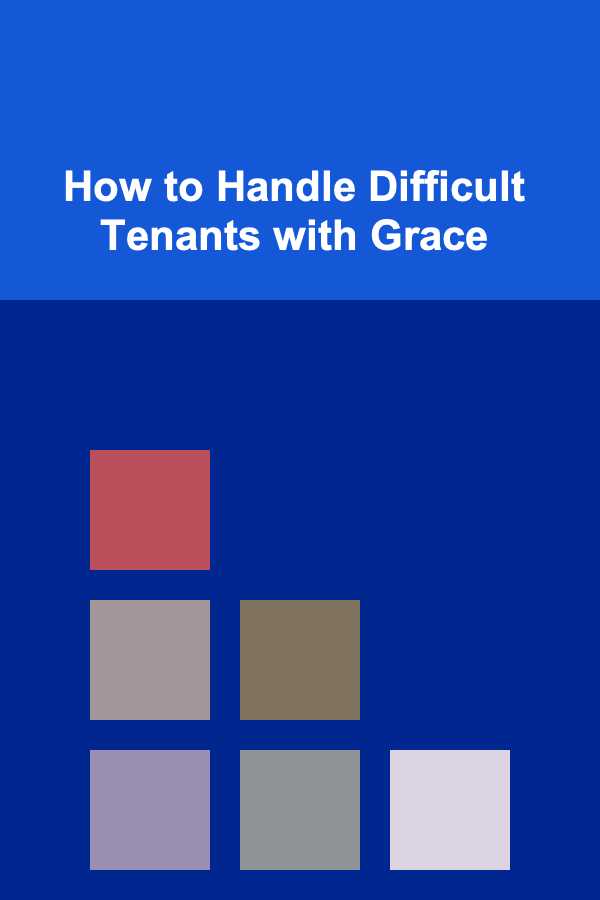
How to Handle Difficult Tenants with Grace
Read More
How to Maximize Storage in Small Bedrooms with Space-Saving Solutions
Read More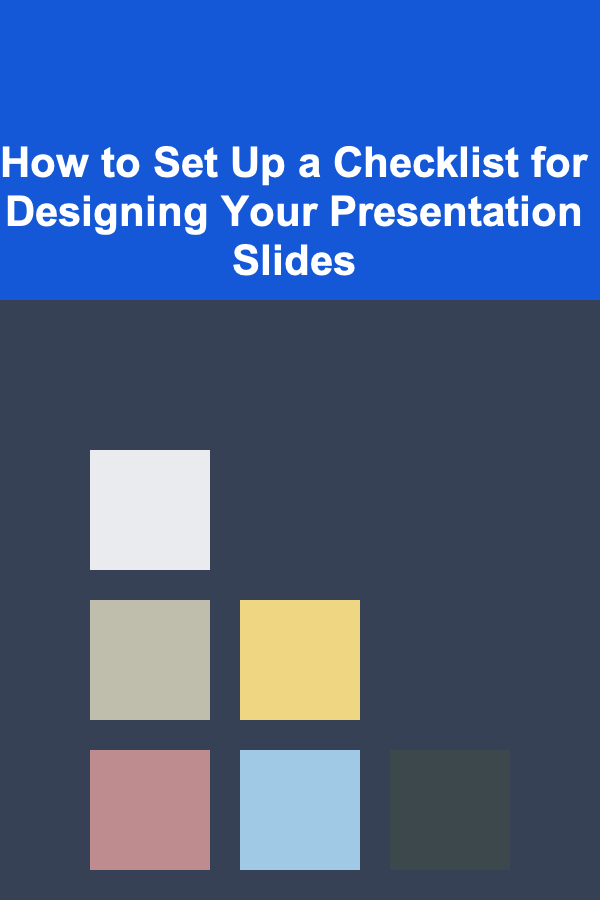
How to Set Up a Checklist for Designing Your Presentation Slides
Read More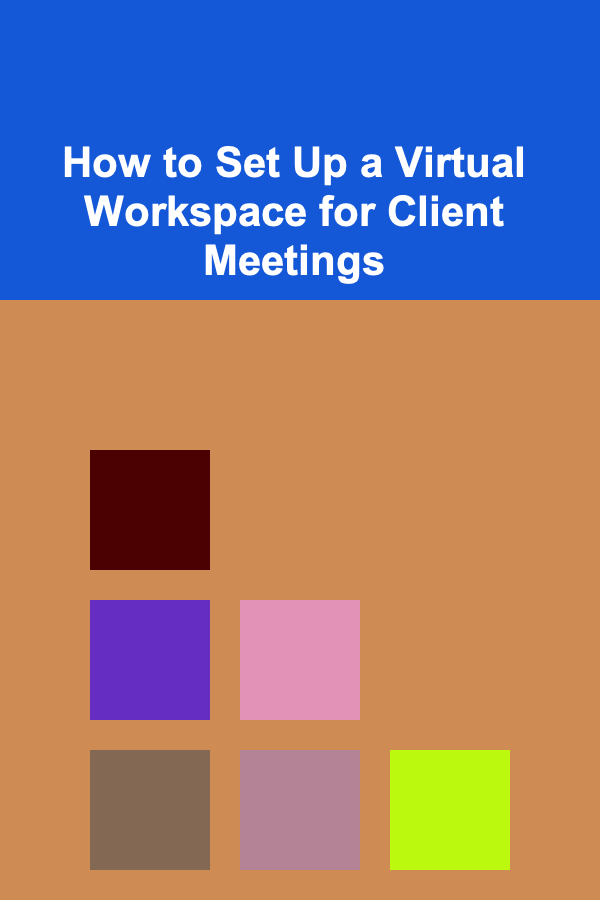
How to Set Up a Virtual Workspace for Client Meetings
Read More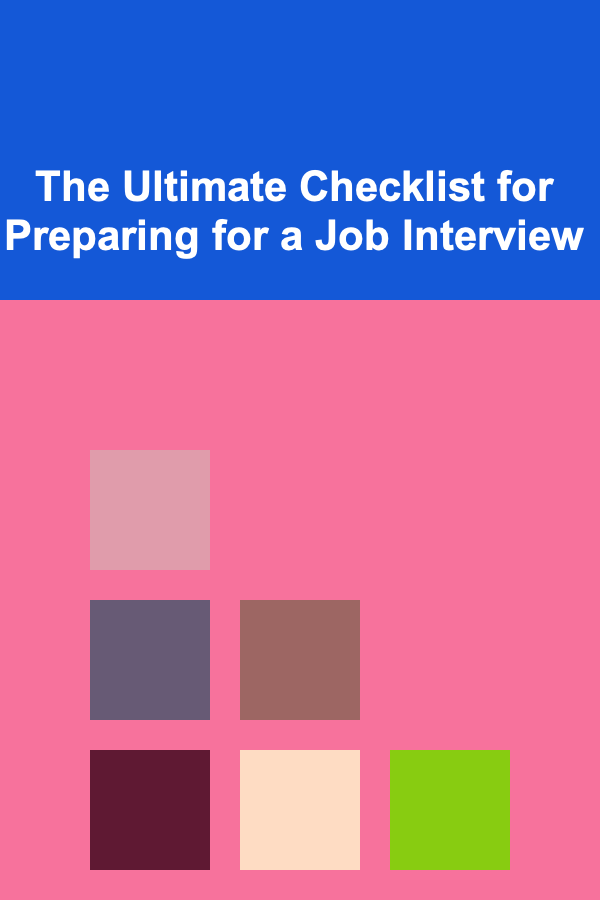
The Ultimate Checklist for Preparing for a Job Interview
Read MoreOther Products

How to Choose the Best Home Rental Property for Your Needs
Read More
How to Handle Difficult Tenants with Grace
Read More
How to Maximize Storage in Small Bedrooms with Space-Saving Solutions
Read More
How to Set Up a Checklist for Designing Your Presentation Slides
Read More
How to Set Up a Virtual Workspace for Client Meetings
Read More